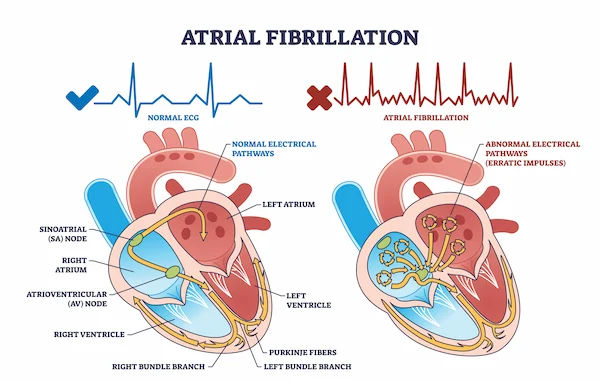- Female
- 55 Years
- 20/02/2025
My mom's dealing with congestive heart failure and it's making her retain fluid. She's also diabetic and on insulin and she has her thyroid under control. We've been trying to get help from these well-known endocrinologists and cardiologists, but they're always super busy and don't really spend the time with her that she needs. She's on Lasix for the fluid retention but it's making her really drained and tired all the time. How can she keep up her nutrients considering the diabetes? I'm worried her magnesium and potassium levels are dropping and it's just making things worse. Do you have any advice on how to keep her energy up without causing more fluid buildup? I'm feeling pretty anxious and overwhelmed about all this.
Answered by 1 Apollo Doctors
It's important to address the electrolyte imbalance while managing fluid retention and diabetes in your mom. To help replenish her electrolytes and maintain her energy levels, you can consider supplementing her diet with foods rich in potassium and magnesium. Additionally, you can discuss with her healthcare provider about prescribing a potassium-sparing diuretic like Spironolactone to help with fluid retention without depleting potassium levels. Adequate hydration is also crucial. For potassium supplementation, you can consider prescribing Slow-K (potassium chloride) at a suitable dosage based on her current levels and needs. As for magnesium supplementation, you can recommend Mag-Ox (magnesium oxide) at an appropriate dosage to help maintain her magnesium levels. It's essential to monitor her electrolyte levels regularly and adjust the dosage as needed to prevent further complications. A balanced diet, along with these supplements, can help support her overall health and energy levels.
Dr. Ranjith Suggests...
Consult a Cardiologist
Answered 04/07/2025
0
0

More Cardiology Health Queries
View allI'm having some pain in my left arm and a kind of sensation there too. At the same time, I'm feeling a bit of a light pain in my chest. What could this be? Should I be worried?
Ecg and cardiac markers are advised to the patient.
Answered by 1 Apollo Doctors
I've noticed that sometimes my heartbeat suddenly speeds up while I'm sleeping, but it goes back to normal after a few minutes. Should I be concerned about this?
This sudden increase in heart rate during sleep could be due to a condition called paroxysmal supraventricular tachycardia (PSVT). To help manage this, you can take a beta-blocker medication such as Metoprolol. The usual dosage for Metoprolol in this case is 25-100mg per day, as prescribed by a doctor. It helps to regulate the heart rate and prevent episodes of rapid heartbeat. However, it is important to consult with a healthcare professional for proper evaluation and management.
Answered by 1 Apollo Doctors
My mom and dad are both senior citizens, and I've been getting a bit concerned about their heart health because there seem to be so many cases of blockages popping up lately. I think catching any issues early on would be really helpful. Also, I've noticed these yellow patches around my mom's eyes, and when I looked it up, it seems like they might be cholesterol deposits or Xanthelasma. Could you suggest what tests we should consider for early detection of any possible issues?
An ecg,lipid panel and echo is advised to the patients.
Answered by 1 Apollo Doctors
Disclaimer: Answers on Apollo 247 are not intended to replace your doctor advice. Always seek help of a professional doctor in case of an medical emergency or ailment.



